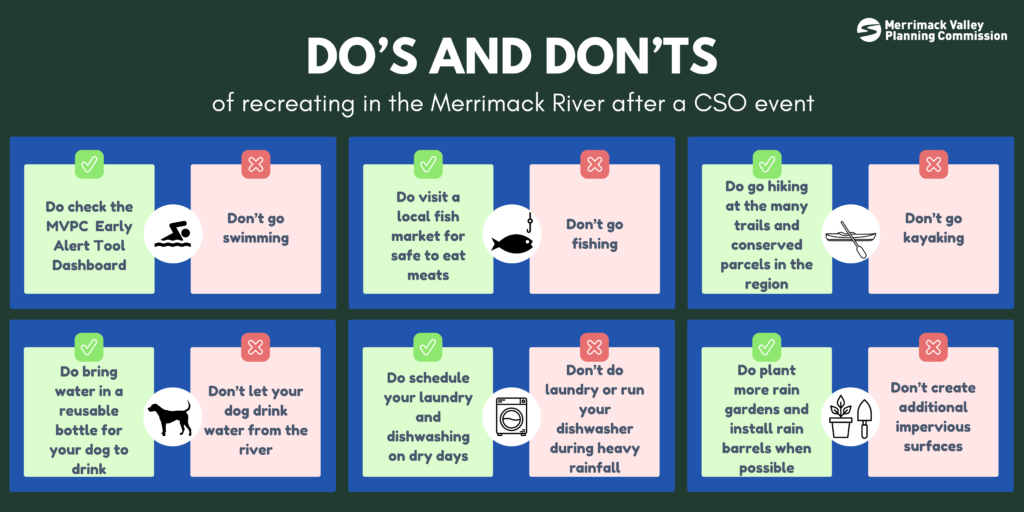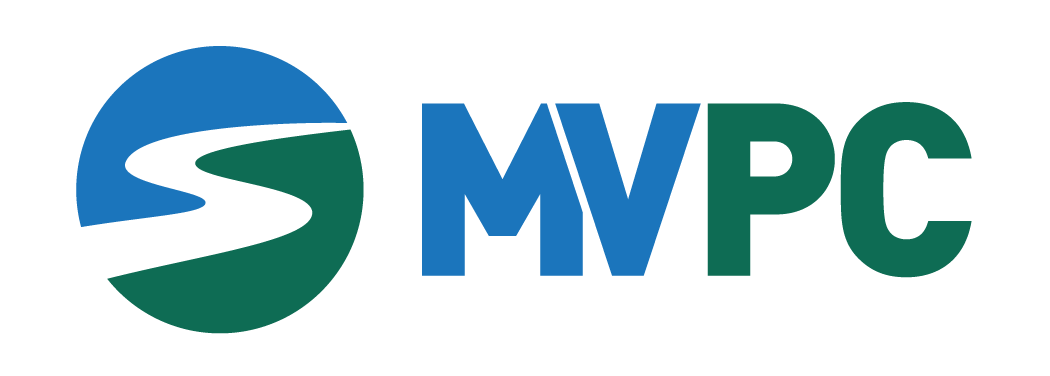Combined Sewer Overflows: Do’s and Don’ts
Combined Sewer Overflow (CSO) events occur when there is heavy rainfall that causes a combined sewer system to get overwhelmed, causing household sewage to be discharged into a nearby body of water. We experienced the worst year on record for Combined Sewer Overflow (CSO) events in the Merrimack River in 2023. This post is a continuation of our CSO Awareness Series and includes some do’s and don’ts during heavy rainfall and CSO events. To find out more about CSO events in the Merrimack River during 2023 check our last post on CSO FAQs, read our previous articles, or email [email protected]!

If there is heavy rainfall in your area, there is a strong chance that a CSO event has occurred. Interacting with the water after a CSO event is unsafe and can lead to an increased risk of bacterial or parasitic infection. The best way to check if the river is safe to interact with is through MVPC’s new Early Alert Tool dashboard, (follow our development of the Early Alert tool and it’s anticipated release through our Environmental Program Page,) but a great rule of thumb is to avoid interaction with the river for up to three days following a heavy rainfall event. This includes activities like swimming, fishing, and kayaking, which all put you at risk for ingesting or coming in contact with bacteria and parasites. This also includes keeping your pets, especially dogs, safe and away from drinking or swimming in the river.
During these heavy rainfall events, MVPC recommends alternative outdoor activities to swimming and kayaking, such as hiking at one of the many trailheads in the region owned by groups such as Greenbelt or the Trustees of Reservations, bringing filtered water for yourself and your pets to enjoy while outdoors, and checking the early alert dashboard whenever you feel unsure about the river’s water quality.
There are also several steps that you can take to help minimize the amount of sewage discharged into the Merrimack after a heavy rainfall occurs. Scheduling your dishwashing or laundry for dryer days helps decrease the overall volume of water entering the sewage system. Additionally, planting rain gardens or setting up rain barrels helps decrease impervious surfaces and prevent rainwater runoff from entering the sewage system. CSOs are a big and long-term infrastructural issue to solve, so doing your part and staying safe from exposure in the interim is essential to the health and wellbeing of those who recreate and live within the Merrimack Valley!
For more information on what MVPC is doing to support this issue, visit the Environmental Program Page, learn more about the efforts on CSO work of the Merrimack River Collaborative.
